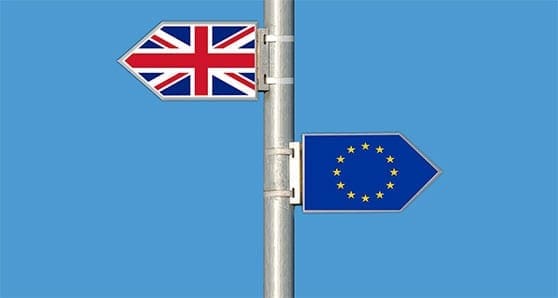 Is this the beginning of the end for globalization?
Is this the beginning of the end for globalization?
That’s what some commentators hinted at last week after the stunning result of the United Kingdom European Union membership referendum, or Brexit. The Leave campaign earned 51.89 percent support (17,410,742 votes), while Remain finished at 48.11 percent (16,141,241 votes).
This led to an eruption on a scale that few democratic nations have ever witnessed.
Tory Prime Minister David Cameron immediately announced his resignation by October. There’s a palace coup involving Labour Party leader Jeremy Corbyn, and it just might topple him. UK Independence Party leader Nigel Farage is crowing about his role in Brexit, too.
Scotland, the only member of the sovereign state that supported Remain, wants to hold another independence vote by year’s end – and stay in the EU. Northern Ireland is piping up about independence yet again. The Netherlands and France are both mumbling about holding Brexit-style referendums.
Meanwhile, the short-term financial fallout has been awful – and rather predictable.
The British pound hit a 35-year-low against the U.S. dollar on June 24, and has continued to decrease. The Financial Times Stock Exchange (FTSE) 100 Index dropped eight percent the morning after Brexit, although it recovered and ended down three percent by the close of trading. (It fell another 2.55 percent on June 27.)
World economies are also suffering because of Brexit. In particular, international equities markets had the highest recorded one-day sell-off of more than US$2 trillion. The Dow Jones has dropped several hundred points, as did the Toronto Stock Exchange.
While there’s no question these political and economic situations will eventually settle down, the future of globalization remains unclear.
It will take two years for the UK to formally withdraw from the EU. As a member state, it has to initiate Article 50 of the Treaty on European Union to get the process rolling. (The recent referendum is non-binding.) Cameron appears unwilling to do it, which means his successor will ultimately have to pull the plug.
During this time, the UK will have to sign various trade arrangements to make up for potential lost revenue. While there are available options, including North America and (interestingly) the EU, these take time to set in stone. Some countries also may not have an interest in dealing with the UK based on bad feelings toward Brexit.
Two years may therefore not be enough time. If the EU doesn’t grant an extension, what happens next?
Here’s something else to keep in mind.
There were reasons why some small “c” conservatives, including me, supported Remain. Yes, the EU was an ineffective, bureaucratic and state-centric institution. Yes, the European Parliament had become far too powerful on a political scale, as the late UK prime minister Margaret Thatcher predicted in Oct. 1990. And yes, there was a growing concern the European economy was suffering under this economic model.
Nevertheless, trade blocs like the EU represent an important component in the push toward a global economy. The rash decision to leave the EU, both in the short term and long term, didn’t seem worth the potential political and economic risk.
Hence, I and others would have preferred to remain in the imperfect EU, and improve the mechanism, than take our chances outside of it. This would have helped ensure the free market remained a viable entity – and globalization continued as a means of benefitting individual economies, as well as maintaining a competitive marketplace.
That’s not what the UK voted for on June 23, however.
Sure, it will continue to trade with other countries, and promote capitalist virtues, trade liberalization, and so on. At the same time, a high degree of anti-globalization sentiments now exist, financial insecurity and economic uncertainty will linger for a while, and protectionism and nationalism are a bit more visible.
It may not be the end of globalization, but I’m not sure what it’s the beginning of, either.
Michael Taube, a Troy Media syndicated columnist and political commentator, was a speechwriter for former Prime Minister Stephen Harper. He holds a master’s degree in comparative politics from the London School of Economics.
The views, opinions and positions expressed by columnists and contributors are the author’s alone. They do not inherently or expressly reflect the views, opinions and/or positions of our publication.


